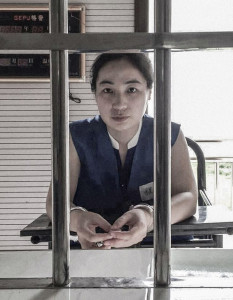
International (MNN) — Last week, the US State Department released this year’s list designating “Countries of Particular Concern” (CPCs) for religious freedom violations.
The ten countries named as CPCs are Burma, China, Eritrea, Iran, North Korea, Saudi Arabia, Sudan, Tajikistan, Turkmenistan, and Uzbekistan.
Todd Nettleton with The Voice of the Martyrs USA explains, “The State Department does this every year as mandated by the US International Religious Freedom Act, a law passed by Congress that calls on them to make religious freedom a part of United States diplomatic relations. So the bill calls for the State Department to really look at other countries’ records on religious freedom and really use our diplomatic interactions to try to encourage countries to provide more religious freedom.”
But why is designating Countries of Particular Concern even helpful? Nettleton says it’s more than just a label.

(Photo courtesy of Voice of the Martyrs)
“By being designated as CPCs, it allows the US government to respond in some different ways, up to and including sanctions and other things designed to kind of goad these countries into treating religious minorities better.”
Another thing that makes the list of CPCs unique is these are countries where the government is facilitating persecution of religious minorities — as opposed to persecution just from community members or private groups.
Each year, the United States Commission on International Religious Freedom (USCIRF) recommends nations to the State Department for CPC designation. USCIRF’s Chairman Daniel Mark stated, “The designation of these countries is a key step in ensuring continued U.S. engagement in support of international religious freedom. Although USCIRF agrees with the 10 countries on the State Department’s list, it does not go far enough. Secretary Tillerson should have also designated the Central African Republic, Nigeria, Pakistan, Russia, Syria, and Vietnam.”
USCIRF also recommends that the State Department designates Entities of Particular Concern (EPC) — namely, the Islamic State of Iraq and Syria (ISIS) in Iraq and Syria; the Taliban in Afghanistan; and al-Shabaab in Somalia.
The State Department did not name any EPCs at the time of last week’s announcement. But USCIRF says they are still hopeful for EPC designations sometime this year as they continue to collaborate with the State Department and the White House.
However, for the first time last week, the State Department did add a “Special Watch List” for countries that tolerate severe violations of religious freedom, but aren’t yet considered bad enough to be CPCs. Pakistan was the only country placed on the Special Watch List.

(Photo courtesy of Voice of the Martyrs Canada)
All of the nations listed as CPCs this year were named as CPCs last year too. So Nettleton says, all in all, the list isn’t surprising. But it will be interesting to see what happens next year in light of this new Special Watch List.
“Because all of these countries were on the list last year and they’re on the list this year again, I don’t see it having a dramatic effect [on US international relations]. Where we might see something more dramatic is if new countries were named. For instance, if a year from now Pakistan is added to the list, that potentially puts some things in play as far as our relationship with Pakistan.”
Religious minorities in the Countries of Particular Concern come from a variety of religions. Christians are one of the religious minorities that often face severe oppression and persecution in these nations.
“All of these countries are countries that Voice of the Martyrs identifies on our prayer map in addition to many others. They designated ten. We have identified 68 countries where Christians are facing persecution,” Nettleton shares.
“We have projects in each of these countries to help the Church, to help Christians respond to persecution, to provide Bibles for Christians, and to support evangelist and Gospel workers in all of these countries to continue sharing the Gospel and advancing the Kingdom.”
Click here to support VOM’s ministry to the persecuted Church.
But, Nettleton says really the biggest way you can support our persecuted Christian brothers and sisters is through fervent prayer.
“Honestly, that’s the first thing [persecuted believers] ask us to do is pray for them. Pray that they will be protected. Pray that they will be encouraged. And pray that they will continue to be bold witnesses for Christ even in times when they do face persecution.”
